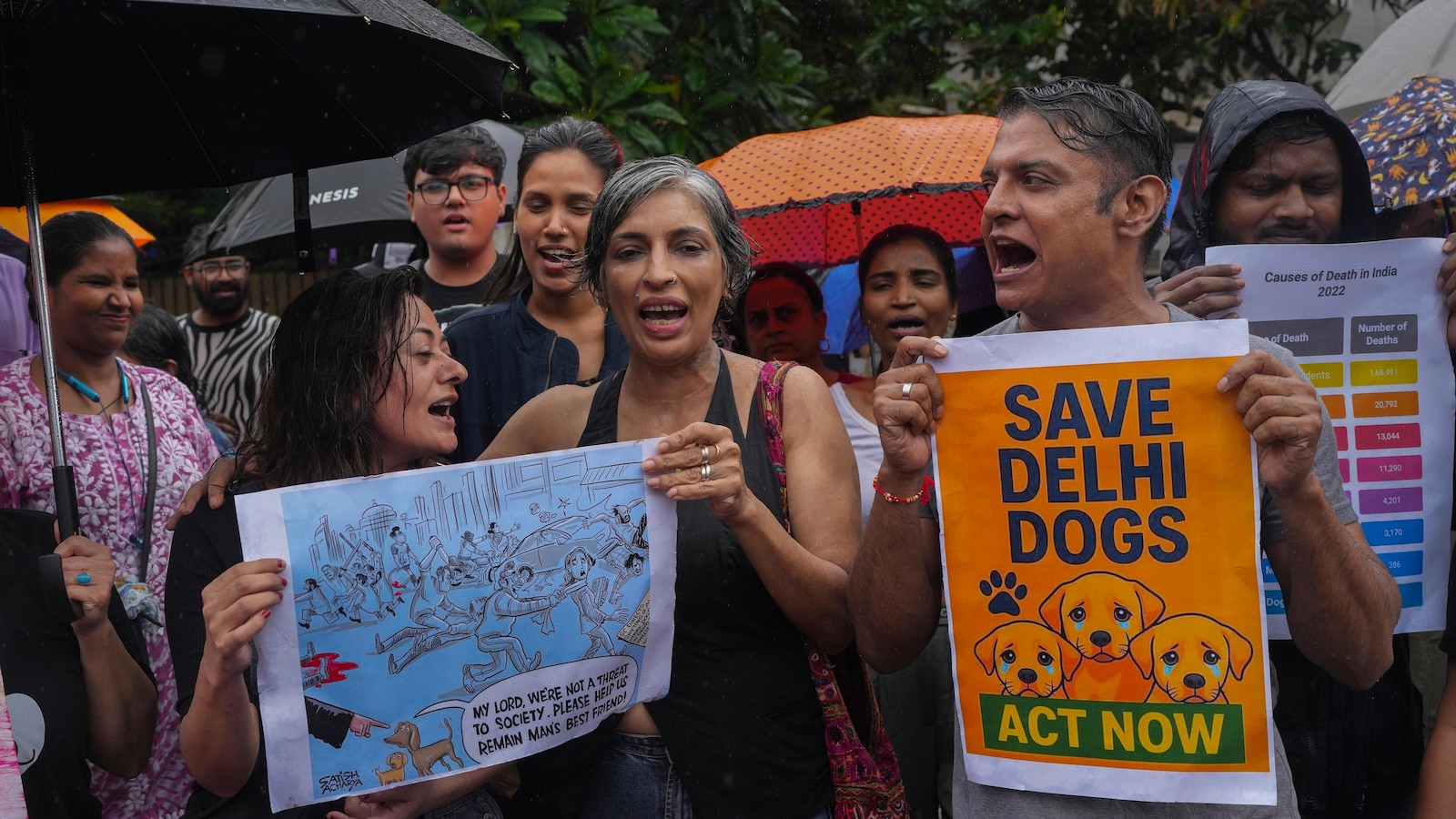India's Supreme Court Orders Release of Sterilized Stray Dogs to New Delhi Streets
India's Supreme Court ordered sterilized, immunized stray dogs released back to New Delhi streets with designated feeding spaces, modifying an earlier ruling after appeals from activists.
Subscribe to unlock this story
We really don't like cutting you off, but you've reached your monthly limit. At just $5/month, subscriptions are how we keep this project going. Start your free 7-day trial today!
Get StartedHave an account? Sign in
Overview
- India's Supreme Court modified its ruling regarding stray dogs in New Delhi, opting to release them back to city streets instead of permanent relocation to shelters.
- The decision mandates that only sterilized and immunized stray dogs be returned to their original localities within New Delhi, with provisions for designated feeding areas.
- This modified order followed appeals from animal lovers and activists who opposed the initial court ruling to permanently relocate stray dogs to shelters.
- New Delhi faces a significant stray dog population, estimated between 500,000 and 1 million, contributing to nearly 2,000 daily dog bite episodes.
- Exceptions to the release order include stray dogs infected with rabies or exhibiting aggressive behavior, which will not be returned to the streets.
Report issue

Read both sides in 5 minutes each day
Analysis
Center-leaning sources are neutral in their coverage of India's Supreme Court decision on stray dogs. They objectively report the court's modified order, detailing its provisions and the context of rising dog bite incidents and rabies cases. The reporting avoids loaded language, presenting factual information and various aspects of the situation without editorial bias.
Articles (3)
Center (3)
FAQ
The Supreme Court ordered that only stray dogs that have been sterilized and immunized should be released back to the same localities in New Delhi. Dogs infected with rabies or displaying aggressive behavior are excluded from release.
The Court prohibited feeding of stray dogs in public places to avoid chaos and ensure public safety. Instead, it directed the Municipal Corporation of Delhi to establish clearly marked, designated feeding zones with notice boards for this purpose.
The modification followed appeals from animal lovers and activists who opposed the earlier ruling mandating the permanent relocation of stray dogs to shelters, citing concerns about animal welfare and sustainability of such relocation.
New Delhi faces an estimated stray dog population between 500,000 and 1 million, and there are about 2,000 daily dog bite incidents reported, some involving children, which raises public health concerns.
The Court called for the creation of designated feeding zones, helplines for reporting violations related to feeding outside these zones, and clear signage. It also mandated that NGOs involved be compensated to set up necessary facilities and barred them from further legal submissions in this matter.
History
- This story does not have any previous versions.

